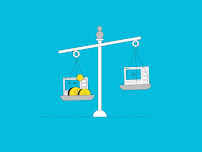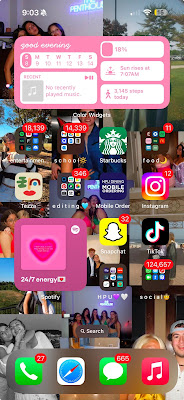In 1996, the Telecommunications Act was passed. The passing of this law aimed to deregulate the industry and promote competition. This meant that any individual was allowed to enter any communications business and any business was now allowed to compete in any market with any individual. As time passed and the industry grew there was worry that internet service providers( ISPs) could prioritize content and block access to certain sites.
Tim Wu, a law professor, at Columbia University first coined the term 'Net Neutrality' in 2003, giving a name and a platform to this future ground-breaking policy. Net neutrality essentially is a policy that states all internet service providers must treat all data and information in the same way. Providers are not allowed to treat different types of data differently and must provide equal access to the Internet regardless of the device, application, or platform used.
The beauty of this policy is that not only must data be treated and provided in an equal manner, but providers must also not block certain content, or participate in paid favoritism.
As long as this policy is held in place, services like Verizon can't speed up its access to websites it owns such as Yahoo or AOL, and it also can't slow down traffic or charge extra fees to other major websites it doesn't own such as Google or Youtube.
This policy, much like the rest of them, has its advantages and disadvantages. As a policy, it does its job by protecting and ensuring the best for the American people. The basis of the idea is to guarantee equal internet access for all. Without it, providers would have the ability and the power to create a "fast lane" for those who can afford it-- affecting those who are struggling financially--, make it harder for small businesses to compete with one another, and even prioritize certain types of data and traffic over others.
Those who are for this policy believe that it promotes a diversity of viewpoints, by protecting free speech, which is critical to a healthy and stable democracy. It protects and promotes the ideas placed under the First Amendment, including the Marketplace of Ideas. All voices can have a platform and know that these services can't block or censor content that they disagree with.
Those who are against the policy, make the argument that since ISPs are prevented from charging different prices for their services, it removes the incentives for the providers to innovate or invest in expanding their bandwidth and infrastructure. This policy in the end could have providers starting to charge based on the number of people using the network.
Since the introduction of the term as a policy, there have been various political debates, with each president having differing opinions on where the policy should stand. The president that takes office has the power to endorse or cut this policy and whether we understand it or not, that decision has the power to change everything. Think about the elements of having an internet that is equal and unbiased. Every single individual living in this country, no matter of status, wealth, age, sexual orientation, race, gender, etc. has access and the opportunity to the internet that is free, efficient, and can be used as a platform for freedom.
So what did each presidency endorse? In 2014 under the Obama Administration, the president endorsed his support for strong internet rules and for the first time called for these rules to be protected under Title II authority. Just a year later in 2015 the FCC passed the policy under the Title. This meant that the Internet was labeled as a common carrier and the administration made it clear that the importance of equal internet was a priority for them.
However, things took a drastic turn when Trump took office, he had the FCC overturn the rules set into place by Obama. The FCC reclassified the service as an information source rather than a common carrier.
Today under the Biden Administration, the president signed an executive order forcing the FCC to reinstate the rules. So you can see that the opinions and beliefs of government officials hold significant power over the American people. It's better to have a president who believes in the significance and importance of this policy, rather than someone who will turn it away.
With the upcoming election, if Trump wins we could possibly see this policy get overturned yet again, and if Harris wins we could see this policy staying for years to come. But how does it affect different categories of people? In terms of rich vs poor, without net neutrality, those struggling financially are completely screwed.
If there is a tier system, they will lose out on job opportunities, basic services, and even educational resources. Only the wealthy will have the ability to pay for these services making them once again the elite. Those in the LGBTQ+ community use the internet to survive and to let their voices be heard. If ISPs are taken away more than likely these voices and platforms who try to show love and support for the community will be censored. Their content and services will be blocked, and it will make it harder for people in this community to connect with others and provide support, information, and resources.
If net neutrality were to be overturned again, the internet would be slowed and certain websites could be blocked affecting the educational resources the growing generation would have access to. Our voices would be censored in yet another way because the power of censorship is growing, and if we keep going at the rate that we are, no one will have any form of freedom. Keeping websites and services open and equal to all, is not simply just about online shopping or having fast internet. It's about being informed and aware of everything that is going on in this country, promoting creativity and thought, and protecting our First Amendment rights. If that gets taken away who's to say what will be next.








No comments:
Post a Comment